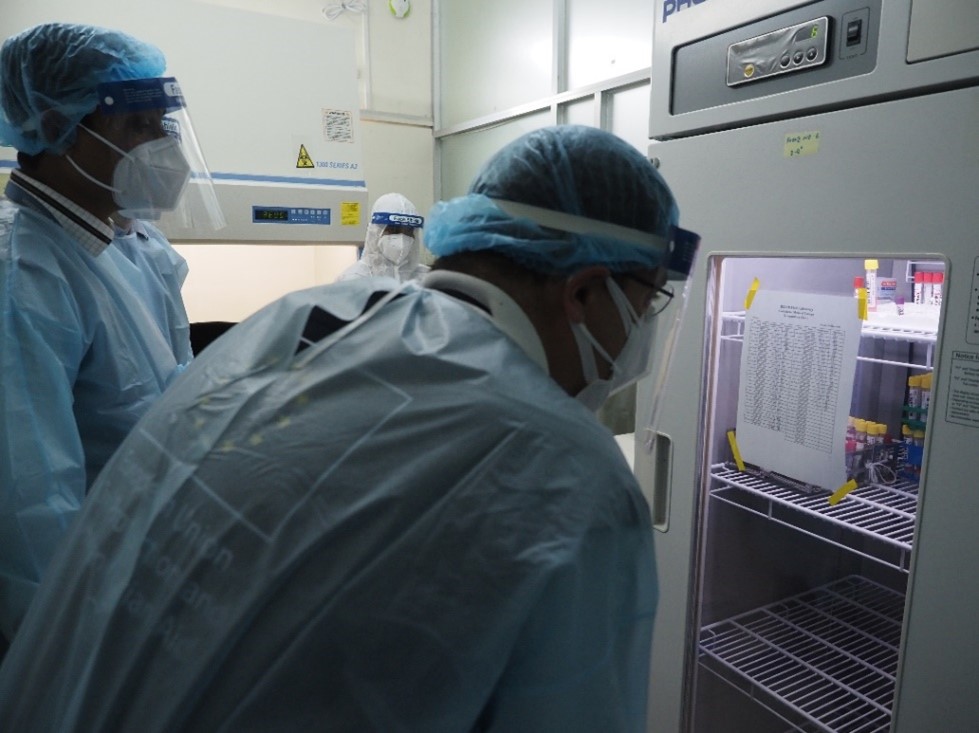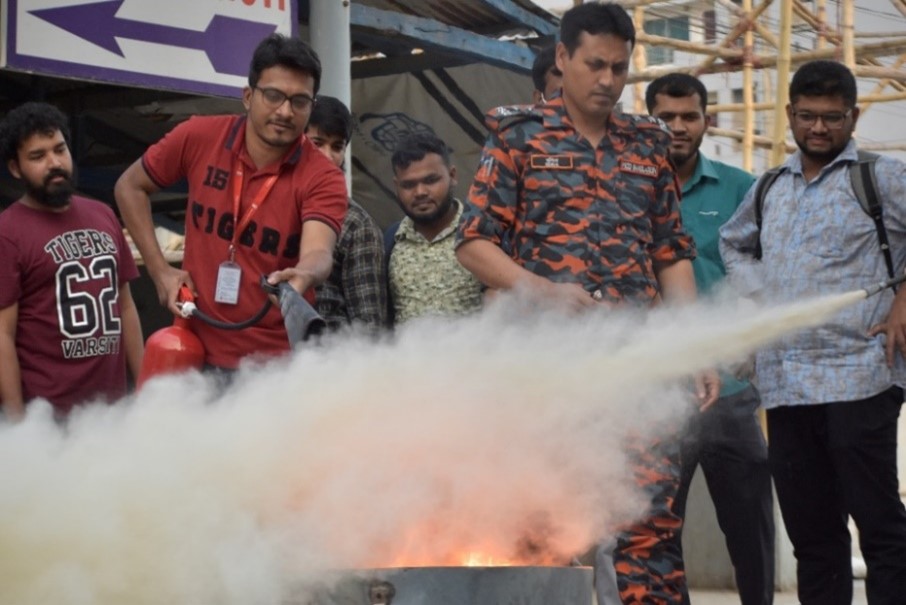ECHO’s support to WHO complements efforts to save lives and restore hope
In the face of adversity, nearly a million Rohingya refugees have sought refuge in Cox’s Bazar, Bangladesh, since 2017, fleeing violence and persecution in Myanmar. These refugees are confronted with man-made and natural hazards and daily health risks in the camps, such as infectious diseases, chronic illnesses, including mental health issues, and gender-based violence.
The European Union Civil Protection and Humanitarian Aid Operations (ECHO) in supporting the World Health Organization (WHO) Bangladesh in its ongoing efforts to provide essential health services and emergency services to these refugees.
“Thanks to the funding from ECHO, we have been able to coordinate among the health sector partners to enhance the access to essential health services and reinforce our readiness and response capabilities for health emergencies, including COVID-19, dengue, and cholera that require multi-sectoral coordinated response approach. This support has played a crucial role in saving lives and mitigating the suffering of the most vulnerable communities in Cox’s Bazar,” said Dr Bardan Jung Rana, WHO Representative to Bangladesh.
Dengue fever, a mosquito-borne viral infection that can lead to severe complications and even death, has significantly increased number of cases since July 2019. WHO has implemented several inter-sectoraly coordinated measures to prevent and contain dengue. These include training healthcare workers from government and NGO health facilities in the camps and surrounding host communities in the identification, diagnosis, treatment, and early referral of dengue patients, including engagement of community health volunteers and hygiene volunteers for community engagement activities to yield desired results. The COVID-19 pandemic significantly impacted the health and well-being of Rohingya refugees and host communities in Cox’s Bazar. The Institute of Epidemiology, Disease Control and Research (IEDCR) Field Laboratory in Cox’s Bazar Medical College has strengthened its diagnostic capacity for COVID-19 and other diseases or medical conditions with support from ECHO.
 WHO laboratory focal person briefed ECHO on laboratory procedures for processing the samples in the IEDCR Field Laboratory. Photo credit: WHO Bangladesh/Irene Gavieiro
WHO laboratory focal person briefed ECHO on laboratory procedures for processing the samples in the IEDCR Field Laboratory. Photo credit: WHO Bangladesh/Irene Gavieiro
WHO is committed to improve health sector partners’ preparedness and response capacity to deal with natural hazards such as fire incidents at refugee camps through several capacity-building exercises on fire safety and clinical care of burns for health sector partners. “ECHO has been a special partner for WHO in enabling us to coordinate the health sector partners to deliver lifesaving and basic health services to the Rohingya refugees and their host communities. With ECHO’s support, we have improved our disease surveillance and response capacities to prioritized biological hazards, such as dengue, diphtheria, and measles,” said Dr Jorge Martinez, Head of Sub Office, WHO Bangladesh.
In addition, WHO is extending its support to Rohingya refugees who have experienced immense trauma and require specialized mental health support. This is achieved by training healthcare workers on the WHO Mental Health Gap Action Programme (mhGAP) Intervention Guide and the stress module for non-specialized healthcare providers. This training has proven beneficial for health sector partners in identifying patients in need of mental health interventions and aligning their needs with available resources in a resource-constrained setting.
WHO has also facilitated numerous coordination meetings among health sector partners with the Civil Surgeon Office, Upazila Health Complexes. Furthermore, WHO cascaded the training and orientation on the Health Resources and Services Availability Monitoring System (HeRAMS) to these partners. HeRAMS enables the health sector to monitor the functionality and accessibility of health facilities and services in camps managed by all health sector partners.
 Healthcare workers undergo hands-on training on fire safety and clinical care of burns. Photo credit: WHO Bangladesh/James Carmichael
Healthcare workers undergo hands-on training on fire safety and clinical care of burns. Photo credit: WHO Bangladesh/James Carmichael
WHO is working relentlessly to save lives and restore hope for the Rohingya refugees, who have endured unimaginable hardships and trauma. By safeguarding the human right to health for refugees, WHO also protects the health of the host populations who have generously welcomed them.
The European Union Civil Protection and Humanitarian Aid Operations is a department of the European Union that provides humanitarian aid and civil protection. It offers assistance to people in need due to natural disasters, conflicts, and other crises.
For more information about this publication please contact Terence Ngwabe Che chet@who.int
